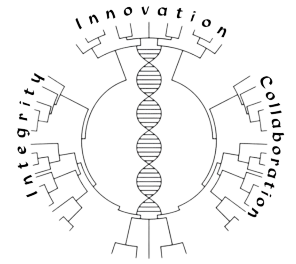JEPIBIO’s Rigorous peer review
JEPIBIO has a rigorous peer review that a cornerstone of scholarly publishing, ensuring that published research meets the highest standards of quality, accuracy, and credibility. Here’s why publishing in JEPIBIO with a thorough peer review process is beneficial:
Ensures High-Quality Research
Peer review involves evaluation by independent experts in the field, who carefully assess the manuscript for its methodology, accuracy, and contribution to the scientific community. This process ensures that only well-conducted, significant, and reliable research is published. The peer review process provides valuable feedback from experts that can significantly improve the quality of a manuscript. Reviewers often suggest refinements in data analysis, interpretation, and structure, helping authors strengthen their research before publication.
Enhances Author Reputation
Publishing in JEPIBIO will enhance an author’s reputation. It demonstrates that their work has been carefully scrutinized and validated by the scientific community, building the author’s credibility and prestige within their field. In the age of rapidly shared information, JEPIBIO act as gatekeepers, ensuring that only accurate, evidence-based research is published. This minimizes the risk of misinformation spreading through the academic community and the general public.
Promotes Scientific Integrity, Ethical Standards, and Credibility
Peer review helps uphold ethical standards in research by ensuring that studies meet guidelines for reproducibility, transparency, and responsible data reporting. It protects the integrity of the scientific record by identifying potential issues such as plagiarism, data manipulation, or conflicts of interest. When researchers publish in JEPIBIO, their work will gain credibility. Readers, other researchers, and the general public trust that the article has undergone a thorough vetting process, ensuring that the findings are valid and trustworthy.
Increases Impact and Visibility
JEPIBIO emphasize rigorous peer review tend to have a higher reputation and a larger readership. Articles published in JEPIBIO are more likely to be cited, as they are viewed as high-quality contributions to the field. This can help increase the article’s visibility and impact on the scientific community.
Supports Funding and Career Advancement
Publishing in a rigorously reviewed journal can positively impact career development. Funding agencies and academic institutions often prioritize research published in high-quality, peer-reviewed journals when considering grant applications, promotions, and tenure decisions. Submitting to JEPIBIO offers authors valuable feedback, often helping early-career researchers refine their research and writing skills. This process serves as a learning experience, helping researchers grow professionally and improving their future work. Rigorous peer review connects authors with experts in their field, fostering professional relationships. The constructive feedback from reviewers can open opportunities for collaboration and future research partnerships.
Publishing in JEPIBIO is more than just an academic milestone; it’s a mark of excellence. The careful scrutiny and expert feedback provided through peer review enhance the quality and credibility of research, ensuring that the final publication is trustworthy and valuable to the scientific community. For authors, this means not only greater impact but also recognition and advancement in their field.
